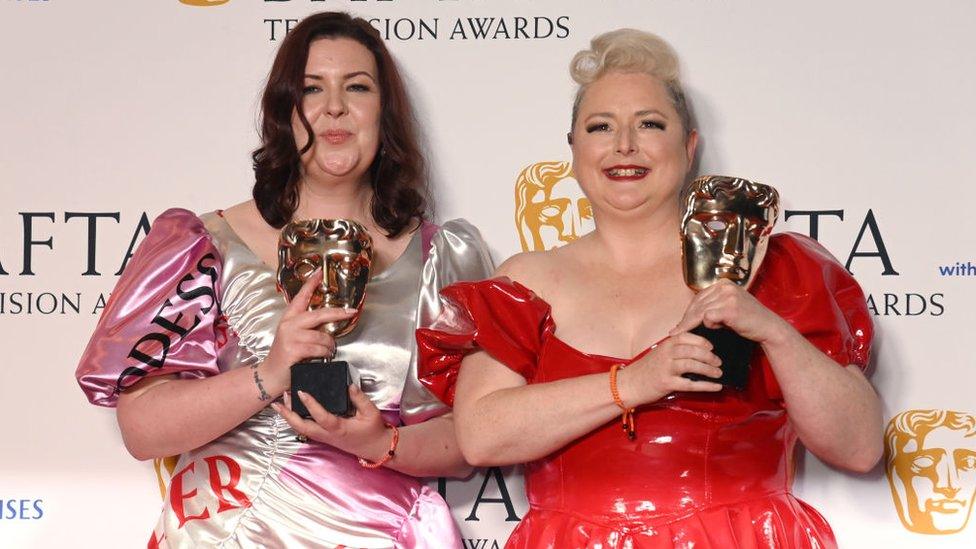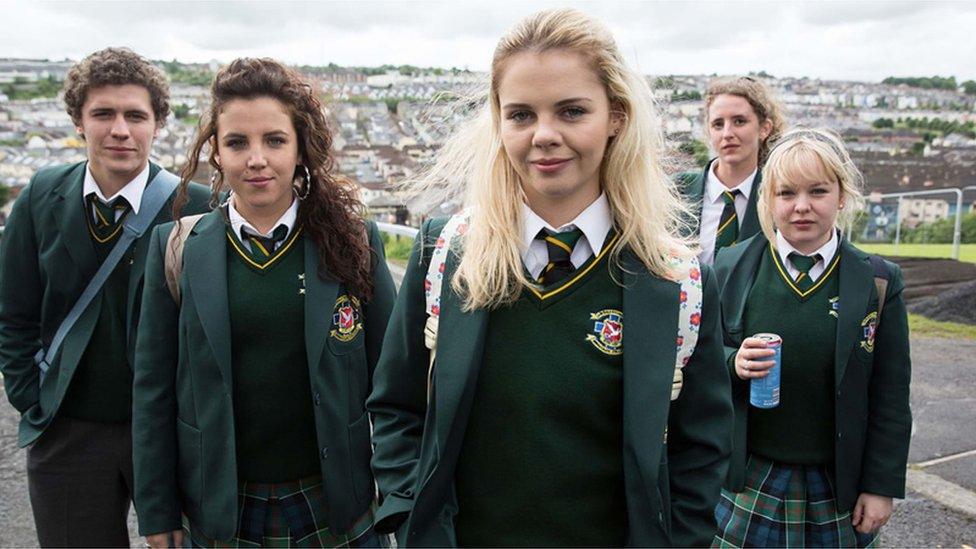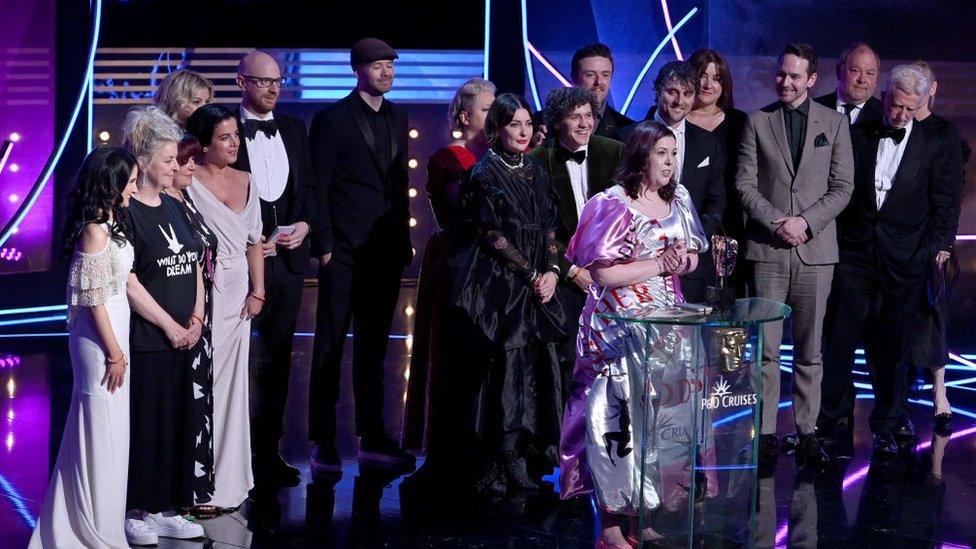Bafta wins 'an amazing end to Derry Girls journey', says Lisa McGee
- Published

Lisa McGee and Siobhán McSweeney both thanked the people of Londonderry in their speeches
A triumphant night at the Bafta TV Awards is "an amazing end to our Derry Girls journey", according to the show's writer Lisa McGee.
The Channel 4 comedy, set in Londonderry in the 1990s, won a Bafta for scripted comedy.
Siobhán McSweeney also won best female performance in a comedy programme for her portrayal of Sister Michael.
The BBC later issued a statement in response to criticism of an edit of McSweeney's acceptance speech.
In part of her speech, which was omitted from the main BBC broadcast and BBC iPlayer but played out in full on the Bafta's official YouTube channel, external, she was critical of some politicians.
"To the people of Derry, thank you for taking me into your hearts and your living rooms," she said.
"I am daily impressed with how you encompass the spirit of compromise and resilience despite the indignities, ignorance, and stupidity of your so-called leaders in Dublin, Stormont, and Westminster," she told the audience at the ceremony on Sunday.
"In the words of my beloved Sr Michael, it is time they started to wise-up," she added.
'Time constraints'
In a statement on Monday, the BBC said: "While we always aim to keep the core sentiment of acceptance speeches, edits have to be made due to time constraints."
A BBC spokesperson said the edit was part of a number of cuts to the broadcast which was played out to TV audiences with a delay.
"The live event is three hours and it has to be reduced to two hours for its on-air slot," they said.
"The same happened to other speeches made during the night and all edits were made to ensure the programme was delivered to time."
They said that all winners' speeches will be available to watch on the Bafta's Youtube channel.

Derry Girls centres on teenager Erin Quinn (centre) and her friends growing up in the city during the Troubles
Derry Girls was first broadcast in 2018 and ran for three seasons before finishing in 2022.
Based around Derry Girls Erin, Michelle, Clare and Orla, plus "the wee English fella" James, the show was about the everyday life of a group of teenagers set against the backdrop of the Northern Ireland Troubles.
It also featured a number of high profile cameos, from Liam Neeson to Conleth Hill.
In her acceptance speech, McGee said that she was struggling to access her list of thank yous because she had forgotten her phone passcode.
"I'd like to thank our first home, Derry, with its unbreakable spirit, and hilarious characters," she went on.
"We'd tell people we were making a comedy about teenagers navigating the Troubles and the standard response was 'that's not funny'," she told the audience.
"It didn't have runaway hit written all over it."

The cast celebrated on stage after winning the award for scripted comedy
The writer added she found "in the specific there is always universal" and there is always "light in the dark".
"What an amazing end to our Derry Girls journey. It's been a privilege making this show and thank you for watching."
Allow X content?
This article contains content provided by X. We ask for your permission before anything is loaded, as they may be using cookies and other technologies. You may want to read X’s cookie policy, external and privacy policy, external before accepting. To view this content choose ‘accept and continue’.
Derry Girls ran for 19 episodes across three seasons, including a finale set as Northern Ireland prepared to vote on the Good Friday Agreement in 1998.
It has previously enjoyed success with a a Bafta for scripted comedy in 2020 and awards at the Irish Film and Television Awards and the Royal Television Society Awards.
Related topics
- Published18 March 2023

- Published18 May 2022
